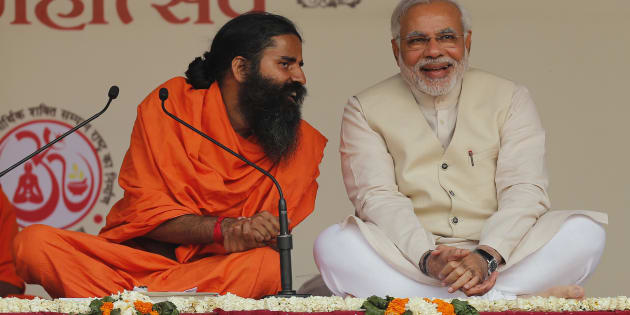
Narendra Modi leaned
to whisper in the ear of the man sitting cross-legged and barefoot next to him,
the one clad in saffron robes with a long beard and squinty gaze. It was late
in the afternoon of March 23, 2014 in New Delhi and the start of national
elections was a fortnight away.
A few minutes later,
the yoga guru and entrepreneur known as Baba Ramdev turned to a microphone and
urged the crowd before him to mobilize votes for Modi: "You'll make other
people understand, won't you? You won't sit at home, will you?" The crowd
roared back, "No!"
Modi grinned. Ramdev
laughed. The politician and the co-founder of a billion-dollar consumer
products business were both headed to the pinnacle of a right-wing Hindu
movement that seeks to shape the destiny of the world's fastest-growing major
economy. About two months after the rally, when voting had rolled across the
vast country, Modi's Bharatiya Janata Party (BJP) swept the long-ruling
Congress Party from power.
Modi had prevailed, in
part, with promises to reform the economy and root out corruption. His
business-friendly language won widespread praise. But it was also his
trumpeting of a Hindu nationalist message – the idea that India should be ruled
as a nation by and for Hindus – that helped propel him to victory.




No comments: